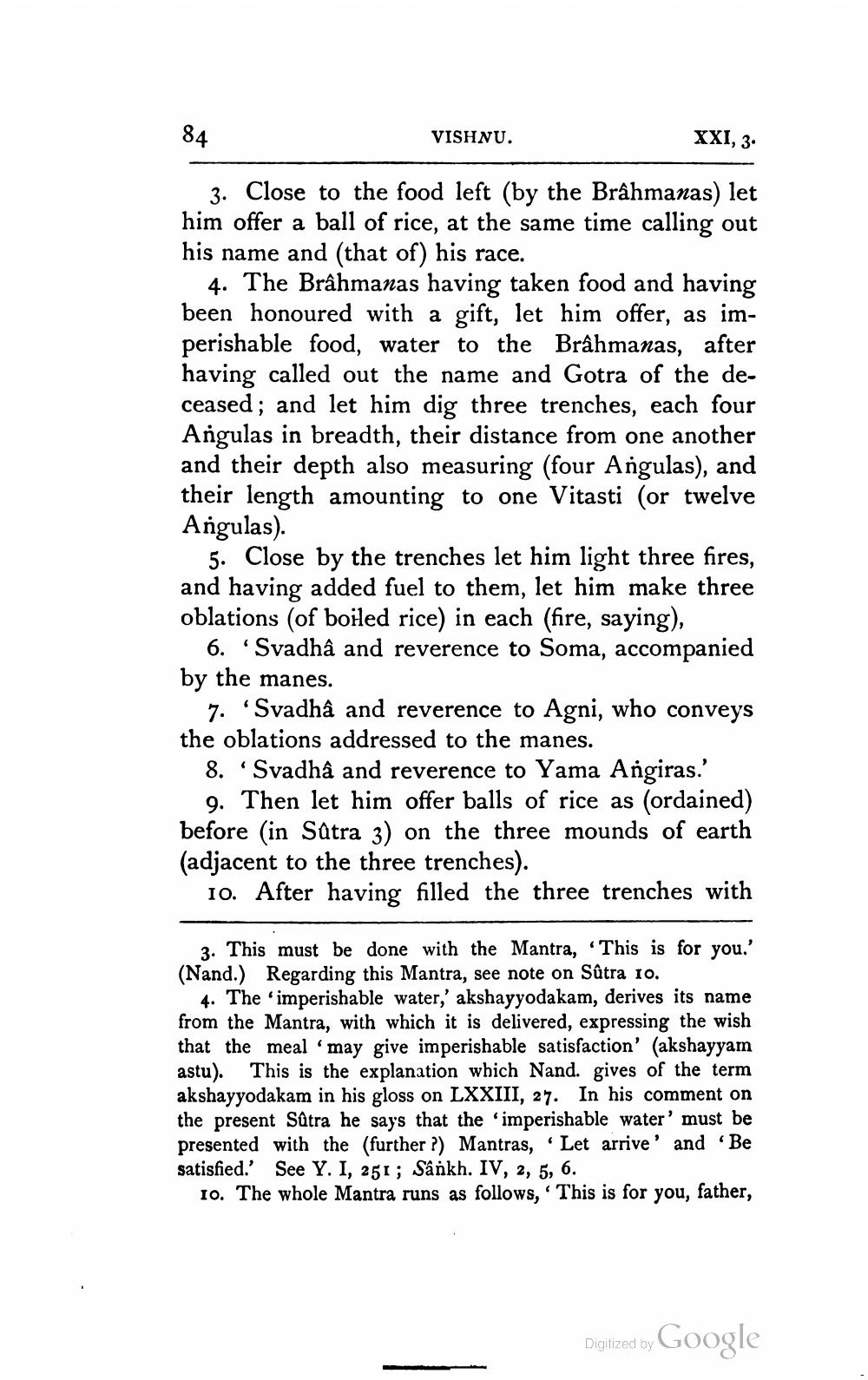________________
VISHNU.
XXI, 3.
3. Close to the food left (by the Brâhmanas) let him offer a ball of rice, at the same time calling out his name and that of) his race.
4. The Brâhmanas having taken food and having been honoured with a gift, let him offer, as imperishable food, water to the Brâhmanas, after having called out the name and Gotra of the deceased; and let him dig three trenches, each four Angulas in breadth, their distance from one another and their depth also measuring (four Angulas), and their length amounting to one Vitasti (or twelve Angulas).
5. Close by the trenches let him light three fires, and having added fuel to them, let him make three oblations (of boiled rice) in each (fire, saying),
6. 'Svadhâ and reverence to Soma, accompanied by the manes.
7. 'Svadhâ and reverence to Agni, who conveys the oblations addressed to the manes.
8. 'Svadhâ and reverence to Yama Angiras.'
9. Then let him offer balls of rice as (ordained) before (in Sätra 3) on the three mounds of earth (adjacent to the three trenches).
10. After having filled the three trenches with
3. This must be done with the Mantra, “This is for you.' (Nand.) Regarding this Mantra, see note on Sûtra 10.
4. The 'imperishable water,' akshayyodakam, derives its name from the Mantra, with which it is delivered, expressing the wish that the meal 'may give imperishable satisfaction' (akshayyam astu). This is the explanation which Nand. gives of the term akshayyodakam in his gloss on LXXIII, 27. In his comment on the present Sätra he says that the imperishable water' must be presented with the (further ?) Mantras, Let arrive' and 'Be satisfied.' See Y. I, 251; Sankh. IV, 2, 5, 6.
10. The whole Mantra runs as follows, 'This is for you, father,
Digitized by
Digitized by Google




